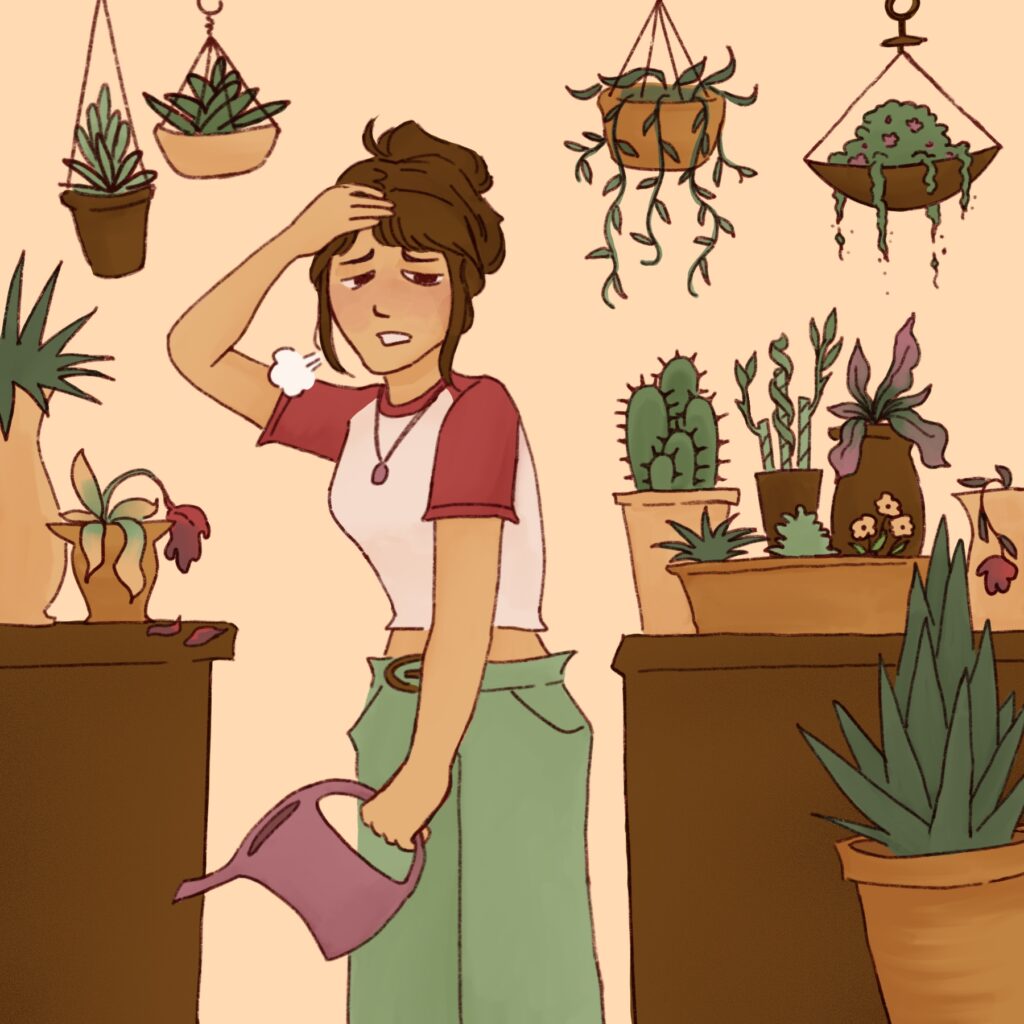
Alexa Sterry
A small pot of succulents, a garden of vegetables, a bush of rosemary. For plant parents, their plants are more than leaves and flowers: they are as important as any family member, friend or pet. Plant parents spend time every day watering and nourishing the plants, keeping them healthy and happy.
“I take care of plants and value plants because they are an essential part of our natural world and the ecosystems that we live in,” said biology teacher Richard Whitmarsh. “I’ve actually propagated plants. I’ve gone to state parks and collected seeds and then brought those seeds home to plant.”
Plant parents are often introduced to caring for plants through family or friends.
“Over the pandemic, I took care of my grandmother’s greenhouse and I started growing basil,” said junior Isabella Bianco. “It was so cool seeing them grow from seeds. When they had leaves, I was able to put the basil on top of my dad’s pizza and we ate it, [which] was really rewarding.”
Succulents may be the archetypal ‘house plant,’ but they can take a wide range of shapes and types.
“We cultivate food plants,” Whitmarsh said. “We have sunflower plants that grew this summer. We grow potatoes during the fall and garlic. Besides food plants, we have plants that are native to California, which encourages pollinating insects and predatory insects to keep the garden healthy.”
Gardening is another hobby that overlaps with plant parenting, with gardeners also dedicating lots of time and energy to maintaining their crop.
“I don’t put gardening in a category that’s exclusively for food production,” Whitmarsh said. “I consider gardening creating a healthy landscape and choosing the right plant for the right setting, but also choosing plants that are a natural part of the ecosystem to encourage those beneficial insects and organisms that should, by nature, be there.”
Others believe gardeners and plant parents have distinct goals with their hobbies.
“I’m a plant parent because a gardener grows plants in order to harvest food from them, whereas a plant parent just has them for the joy of taking care of plants,” said junior Adam Richter.
Plant parents can also develop personal connections and memories with their plants over time, furthering their sense of attachment.
“[I remember when] my bamboo died because my cat ate it,” Richter said. “Except the root [was not damaged], so then it grew back.”
Plant parents also place value on the physical appearance of their plants, choosing to cultivate plants with attractive qualities.
“There’s this plant called an inch plant and it grows like a weed and it looks pretty and lush,” Bianco said. “I’ve [also] grown wildflowers before. I wasn’t in the greenhouse for a while, and then I came back in and saw all these flowers blooming.”
Plant parenting is not easy: it requires consistency, dedication and an understanding of each plant’s needs in order to keep the plant healthy.
“You need to stop your cats from eating them,” Richter said. “You also need to give them the right amount of water, it’s really easy to give too much or too little.”
Plant care takers have learned larger life lessons by caring for their plants.
“It has taught me responsibility, Richter said. “I have to remember to water them and [understand] the way each one needs a different amount of water.”
Plant parents grow plants for many reasons, and despite the major commitment required to ensure the plant is healthy, they consistently give joy and satisfaction to the parent, offering them something to look forward to every day.




